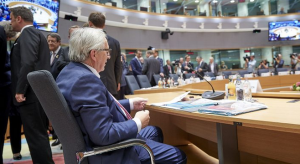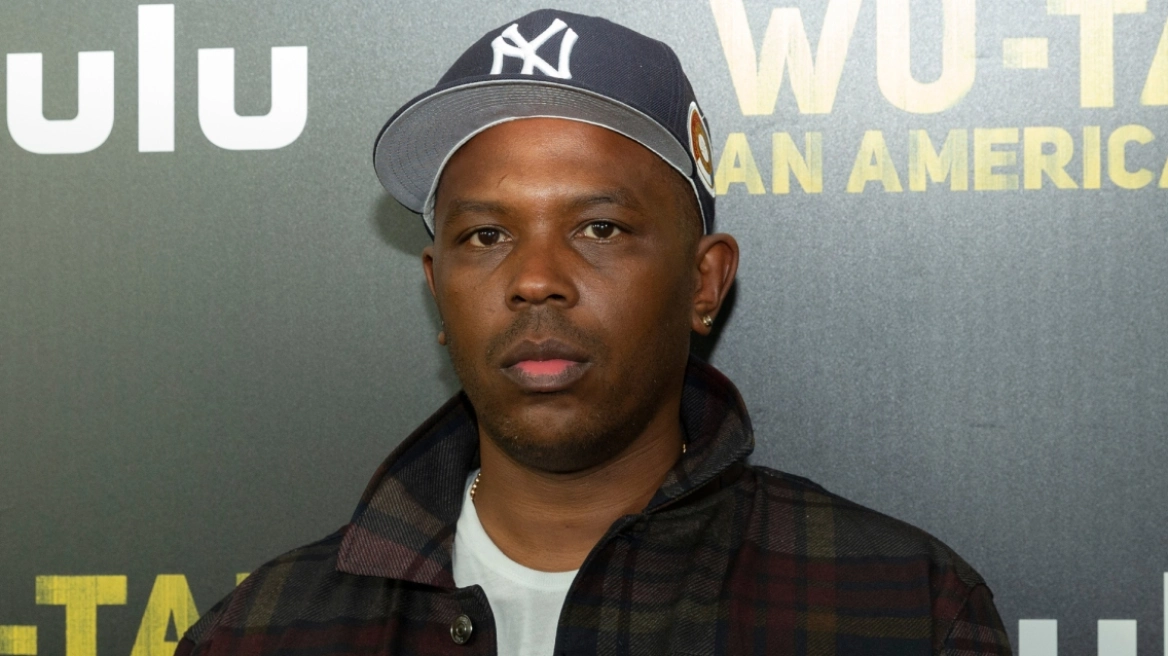The EU leaders agreed “in substance” on Thursday (28 June) on a set of proposals to improve the World Trade Organisation, which should pave the way for finding common ground with US President Donald Trump and de-escalating the ongoing trade dispute. But Italy blocked their formal adoption until the migration issue was fully addressed.
Part of the reforms discussed by the EU leaders at a summit in Brussels mirrored longstanding demands made by the US to modernise the WTO, including improving the Appellate Body.
Washington had complained that the body is too slow in dealing with trade disputes, as the Boeing-Airbus case between Washington and the EU proved.
EU sources said that although leaders agreed “in substance” on this part of the conclusions, the formal approval was blocked by new Italian Prime Minister Giuseppe Conte.
He warned that he would not endorse the summit conclusions unless he achieved a satisfactory response to his demands to address the migration issue.
Juncker-Trump in late July
The set of proposals to reform the WTO could serve to tone down the tensions between Washington and Brussels, caught in the middle of a trade dispute triggered by Trump’s duties on steel and aluminium exports.
Trump has invited European Commission President Jean-Claude Juncker to come to Washington. EURACTIV has learnt that the trip could take place on 24 July, although the date is not confirmed yet.
The trip would follow the latest warning sent by Trump that he was ready to impose tariffs on European cars unless the bloc removes its own tariffs slapped on US products.
An EU source told Euractiv that the document could be seen as a leaders’ message to Trump, to be delivered by Juncker.
The Commission insisted in the past that both sides of the Atlantic could work to modernise the WTO.
This issue has always been mentioned in the summits’ conclusions, but it is the first time that the document spelled out the priority areas for the EU.
The conclusions adopted by the European Council stressed “the importance of preserving and deepening the rules-based multilateral system”.
In order to bolster the WTO, the Europeans committed to working with other countries to improve the organisation.
In that regard, they proposed a “more effective and transparent dispute settlement”.
But the bloc also calls for new rules to address “current challenges” at the core of the dispute between the US and China, including Beijing subsidies to industries like steel production, intellectual property and forced technology transfers.
Trump approved a 25% tariff on $50 billion worth of Chinese exports to punish the country for stealing American technology and trade secrets.
Last month, the Commission also decided to file a complaint before the WTO against China for its intellectual property practices.
The other proposals to modernise the WTO also refer to changes to achieve “more flexible” negotiations, reduce trade costs, and have a new approach to development.
The EU leaders also want to improve the transparency of the WTO itself and its surveillance function.
On his way into the meeting, French President Emmanuel Macron defended the multilateralism in global trade, but added that the WTO required an “indispensable reform”.
Support for restrictive measures
Although the leaders are trying to find some common ground with Trump to at least stop the escalation, they fully supported the Commission’s tariffs imposed on US products in response to Trump´s duties on European steel and aluminium.
“Eye for an eye & both warriors will go blind,” warned the President of Lithuania, Dalia Grybauskaitė, on her Twitter account.
Moreover, the European Council gave its blessing to the restrictive measures that the EU executive is considering to impose in mid-July to limit the arrival of the steel and aluminium excess initially sent to the US market.
But steel and cars are not the only fronts in the trade dispute between the EU and the US, Spanish Prime Minister Pedro Sanchez reminded his colleagues. Spain’s black olives have also been hit with tariffs by the US Administration.
For that reason, EU leaders accepted the Spanish Socialist premier’s proposal to include a reference in the conclusions.
“The EU must respond to all actions of a clear protectionist nature, including those calling into question the Common Agricultural Policy,” read the final text.
US administration said the CAP subsidies represent illegal aid, an argument contested by the Europeans.
Source: Euractiv
Ask me anything
Explore related questions





